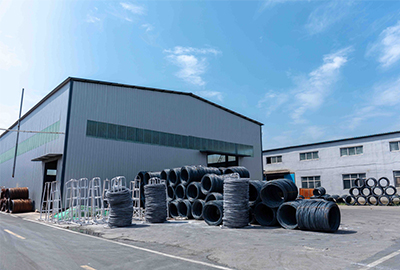High-Performance Joint Connector Bolts for Enhanced Durability and Reliability in Applications
Dec . 05, 2024 11:41 Back to list
High-Performance Joint Connector Bolts for Enhanced Durability and Reliability in Applications
High-Quality Joint Connector Bolts The Backbone of Structural Integrity
In an era where construction and manufacturing demand precision and durability, high-quality joint connector bolts have emerged as essential components for ensuring the structural integrity of various applications. Whether in buildings, bridges, machines, or furniture, these bolts provide the necessary strength to hold together different materials, preventing failures and ensuring longevity.
Understanding Joint Connector Bolts
Joint connector bolts, commonly referred to as fasteners, are devices used to mechanically join two or more items together. They come in various shapes, sizes, and materials, tailored to the specific requirements of the application. The importance of using high-quality bolts cannot be overstated, as they ensure reliable performance in dynamic load-bearing scenarios. The selection of appropriate bolts is critical in engineering and construction, where safety is paramount.
Materials and Manufacturing Considerations
The manufacturing process of high-quality joint connector bolts typically involves materials such as stainless steel, carbon steel, and alloy steel. Stainless steel bolts, for example, are chosen for their corrosion resistance, making them ideal for outdoor and marine applications. Carbon steel bolts are favored for their strength and affordability, while alloy steel bolts provide enhanced performance under high-stress conditions.
High-quality bolts undergo rigorous manufacturing processes, including forging, heat treatment, and surface finishing. These processes enhance their mechanical properties, such as tensile strength and fatigue resistance, which are crucial for applications involving fluctuating loads. Moreover, advanced machining techniques ensure precise tolerances, leading to better fit and alignment in assemblies.
Importance of Quality Standards
In the realm of fasteners, adhering to established quality standards is crucial. Organizations like the American Society for Testing and Materials (ASTM), International Organization for Standardization (ISO), and others set guidelines for bolt design, manufacturing, and testing. These standards ensure that fasteners meet specific performance criteria, which is essential for maintaining the safety and resilience of structures.
high quality joint connector bolts

High-quality joint connector bolts are subjected to rigorous testing procedures, including tensile tests, shear tests, and fatigue tests
. These assessments verify the bolts' performance under various conditions, allowing engineers to guarantee that they can withstand the demands of their intended applications.Applications of Joint Connector Bolts
Joint connector bolts find application across numerous industries. In construction, they are pivotal in connecting beams, columns, and structural components, effectively distributing loads and improving stability. In mechanical engineering, bolts are essential for assembling machines, vehicles, and equipment, where any failure could result in significant safety hazards.
Moreover, in the furniture industry, quality bolts contribute to the durability and strength of various products, from chairs to modular systems. The reliability of high-quality bolts ensures that the final products can withstand everyday use, thereby enhancing customer satisfaction.
The Economic Impact of Quality Fasteners
Investing in high-quality joint connector bolts may initially seem costly, but the long-term benefits are undeniable. Structures built with quality components experience fewer failures, resulting in lower maintenance costs and extended lifespans. This economic advantage has led many industries to prioritize quality over price when selecting fasteners.
Moreover, the integration of high-quality bolts enhances the overall safety of structures, reducing the risk of accidents and the subsequent financial implications of liability. Ultimately, choosing the right fasteners is a worth-it investment in both safety and efficiency.
Conclusion
High-quality joint connector bolts play a crucial role in ensuring the safety and integrity of various applications across industries. Their selection and use, guided by stringent quality standards and rigorous testing, make them indispensable components in construction and engineering. As industries continue to evolve, the demand for reliable fasteners will only grow, solidifying the status of high-quality joint connector bolts as the backbone of structural integrity in our modern world. Investing in these components not only guarantees performance but also promotes safety and efficiency, underscoring their importance in contemporary manufacturing and construction practices.
Latest news
-
High-Quality Panel Stud Bolt Reliable Panel Stud Bolt Factory & Suppliers
NewsJul.08,2025
-
High-Precision Fine Thread Locknuts Manufacturer & Supplier Custom Solutions
NewsJul.08,2025
-
PH Imperial Stud Bolt – High Strength Fasteners from Leading Supplier & Factory
NewsJul.07,2025
-
High-Quality Allen Wrench Bolts Leading Factory, Company & Suppliers
NewsJul.07,2025
-
Wholesale Ball Stud Bolt - High Quality Supplier & Factory Price Reliable Wholesale Ball Stud Bolt Company
NewsJul.06,2025
-
High-Strength Alloy Bolts Manufacturer & Supplier Quality Alloy Fasteners Factory
NewsJul.06,2025
